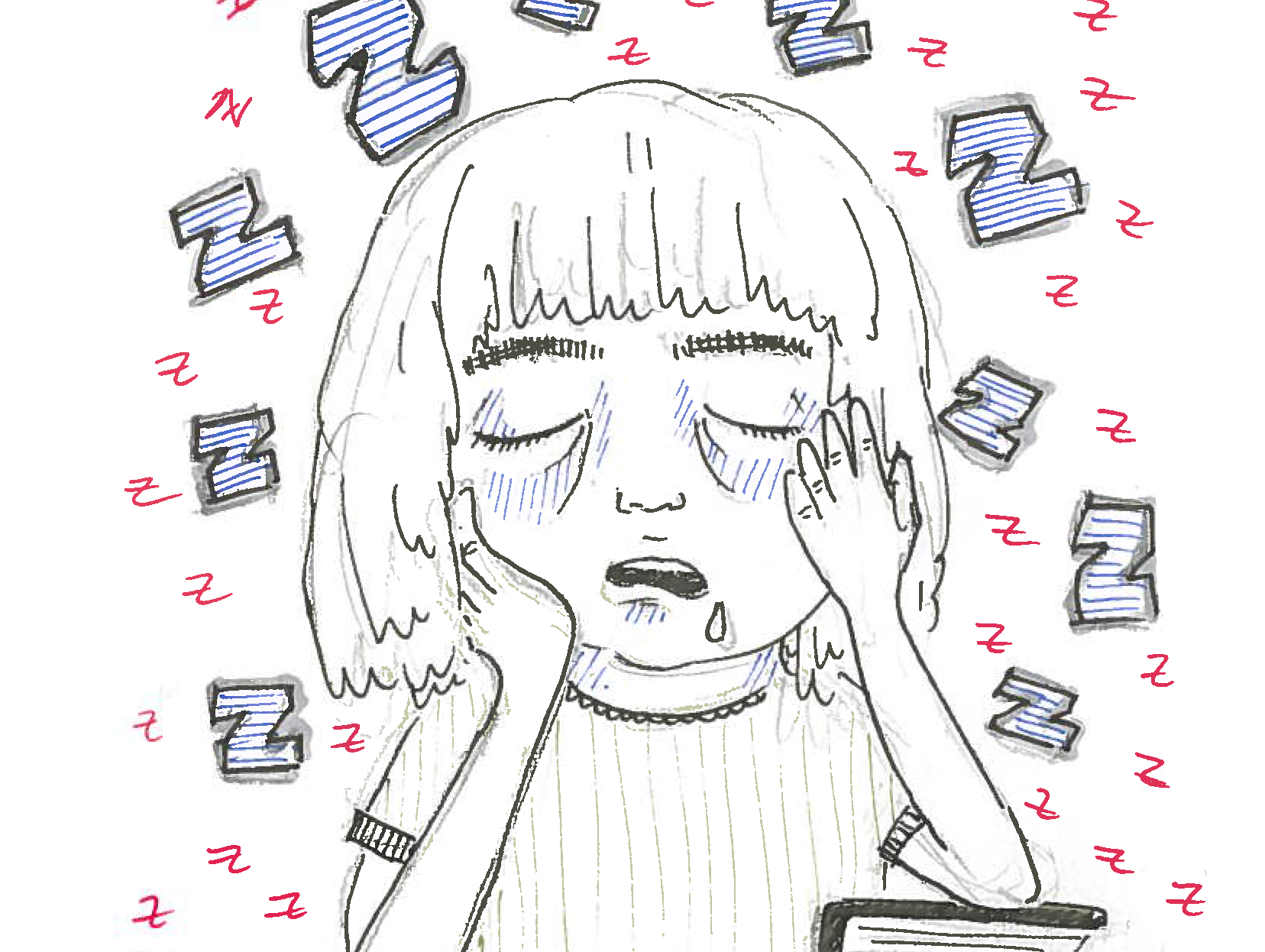With the onslaught of midterms on the horizon, sleep will likely be pushed down the list of students’ priorities.
According to a report card issued by ParticipACTION, a Canadian non-profit organization focused on improving public health, 26 per cent of adolescents are either mildly or moderately sleep deprived. In addition to citing statistics, the report card also establishes a data-based guideline on the amount of time children and adolescents should be sleeping—the first such guideline published in Canada.
Despite its importance, sleep deprivation has not yet been the focus of serious public discourse.
“I don’t think [sleep has] been a prominent public health discussion point,” Dr. Mark Tremblay, the report card’s chief scientific officer, told The Globe and Mail in June 2016.
The rapid digitization and the presence of screens in children’s rooms have contributed to the deterioration of sleep in recent years.
Recent studies have indicated that a good night’s sleep relies on appropriate levels of physical activity during the day. As such, ParticipACTION recommends a new philosophy called “the whole day matters.”
“There is a direct correlation between sleep and [children’s] physical activity levels,” Tremblay said.
According to the report card, children ages five to seventeen should perform at least one hour of moderate to intense physical activity per day. Only nine per cent of Canadian children meet the criterion.
Early school start times also play a significant role in the amount of sleep children and adolescents receive during the week. According to participACTION, schools should begin no earlier than 8:30 in the morning.
McGill researchers published a study in The Journal of Sleep Research in November 2016, which contributed further evidence to an already growing body of data indicating that early school start times could be adversely affecting the grades and the general well-being of children and adolescents.
“This study provided the first comprehensive assessment of school start times across Canada and examined whether school start times were associated with sleep duration and tiredness among adolescents,” the study’s abstract explained.
The researchers, led by Dr. Geneviève Gariépy of McGill’s Institute for Health and Social Policy, reported that despite 69 per cent of students meeting the national recommendations for sleep, 60 per cent reported feeling tired throughout the school day.
“Although school start times in Canada [are] better than in the U.S., there really hasn’t yet been a focus on adolescent sleep,” said Gariépy in an interview with The McGill Tribune.
But the situation seems to be improving. According to Gariépy, her research has led to the implementation of new policies regarding start times in two high schools in Eastern Canada.
A number of studies have shown that adolescents differ from adults in their sleep-wake cycles in two respects. First, adolescents require a longer duration of time to fall asleep compared to adults. Second, the secretion of melatonin—a hormone thought to induce drowsiness—is delayed in adolescents. As the brain releases melatonin in response to darkness, the change in secretion patterns observed in adolescence contribute to the sleep-wake system’s phase delay during this period of life.
Sleep deprivation has been linked to a variety of health problems including obesity, mood disorders, and depression. Signs of inadequate sleep may include daytime lethargy, depression, and loud snoring—an indication of restricted airflow.
The Canadian Sleep Society recommends nine hours of sleep per night. With time starting to stretch thin for many students, it will be difficult to meet this standard. But it is important to keep in mind that adequate sleep will result in more energy, better mood, and, in turn, better grades.








